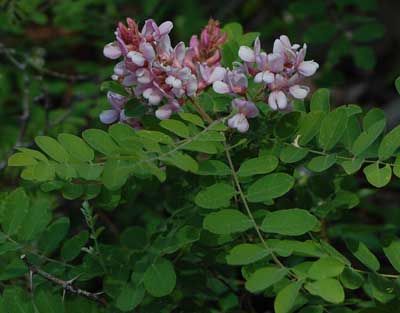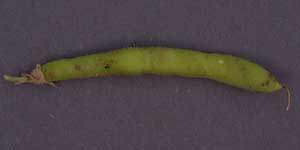New Mexico Locust
Robinia neomexicana

Along Sycamore Creek in the Pine Mountain Wilderness, Yavapai Co., Arizona, USA. 07 June 2009.
Sponsored Links:
FLOWERS: Large clusters of pea-flowers in multiple shades of pink
blooming mostly May and June.
LEAVES: Pinnately compound leaves are alternate on the stems. Each leaf
has 9 to 21+ rather thick leaflets and the leaves are deciduous after frost.
TREE: Usually a large shrub or occasionally a small tree reaching
several meters in height. Thickets may form as underground runners give rise to new plants. A
champion New Mexico Locust in the Coconino National Forest is
27 meters tall!
RANGE: In Arizona's sycamore woods this plant tends to occur outside the
main channel on the flanks of the canyon walls. It ranges from California to
Texas and is also found on hillsides in ponderosa woodlands.
FRUIT: A thick bean pod with several bean-seeds. The surfaces of growing pods are covered with very sticky, gland-tipped
hairs in which tiny insects often become mired.

ARMED. Stout and sharp thorns on twigs and smaller branches. When New
Mexico Locust grows in clumps, bushwhacking through them becomes a painful
proposition.
A butterfly, the Silver Spotted Skipper, is almost always found in association with this plant, because the caterpillar feeds on the leaves.

Fabaceae -- Bean Family
More Information:
- Southwest Environmental Information Network
- Encyclopedia of Life
- USDA Plant Profile
- ITIS Taxonomic Report
- Google Images
- Google Scholar Literature Search